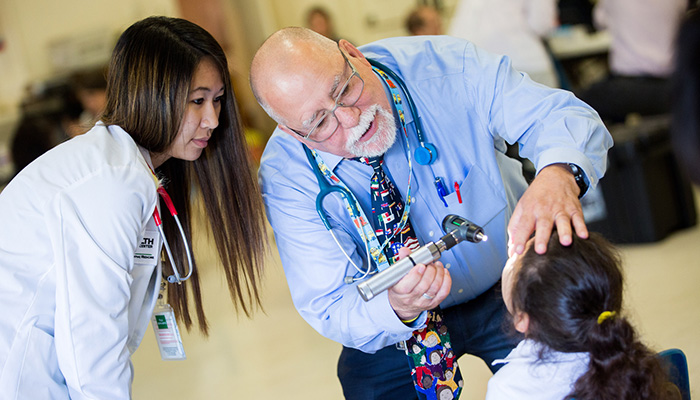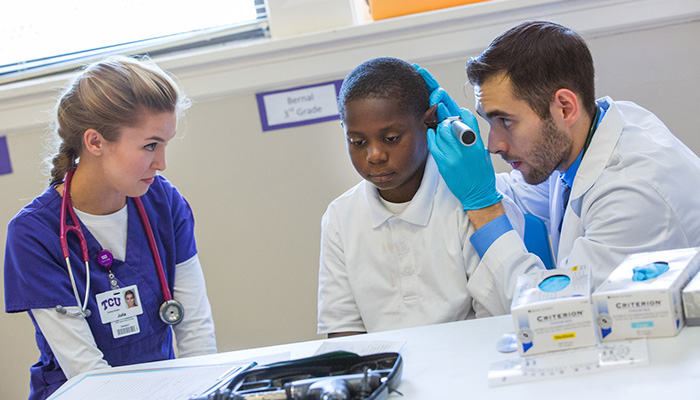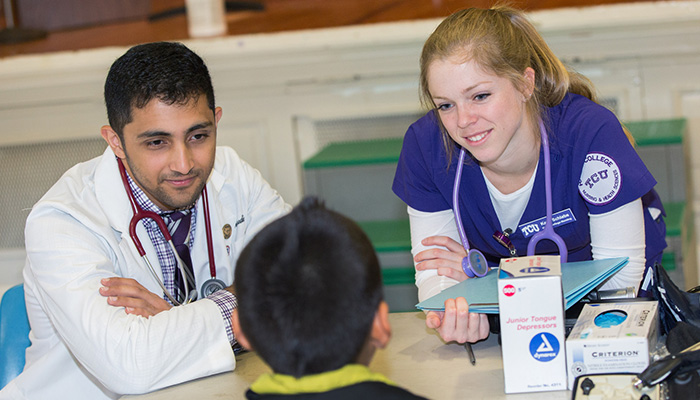Taking team-based care to kids
By Alex Branch

The value of team-based health care is clear to Steven Sanchez inside the auditorium at Morningside Elementary School in Fort Worth.
That’s where the 2nd-year UNT Health Science Center medical student provides free comprehensive health checks to children twice a month while teamed with student nurses, speech pathologists and oral hygienists from Texas Christian University and Texas Woman’s University.
That care is part of a new collaboration between the three schools that is designed to train students to treat patients on teams with providers from other specialties. Interprofessional team-based care has been shown to deliver better outcomes for patients.
“It’s unbeatable experience working on a team with the nurses and hygienists because that’s how you deliver the best care,” Sanchez said. “I get to hear their insights and they get to hear mine.”
Second- and third-graders rotate among tables staffed by students from all three universities. UNTHSC medical students in white coats, TCU nurses in purple and TWU hygienists in green blur together as they listen to heartbeats and lungs, perform neurological exams, and peer into ears, noses and mouths.
About 40 percent of children examined are flagged for conditions — ear infections, heart murmurs, dental disease — that require follow-up care with their family doctors, dentists or the UNTHSC Pediatric Mobile Clinic, which takes care directly to children in underserved neighborhoods, said Richard Magie, DO, a UNTHSC Associate Professor of Pediatrics.
“This project lets our students experience the reward of giving back to their community,” Dr. Magie said. “By providing a service to these kids now, our students become more likely to volunteer their time after graduation and in the workforce.”
Interest in pediatrics led many students to join the project. After new children arrive at a table, the students spend the first few moments chatting casually with them, putting them at ease.
Ashlee Rader, a TCU junior nursing student, said the project is valuable experience for students who one day hope to work in pediatrics.
“Talking about health to a child is different than to an adult,” she said. “Our schools are working together to make sure we communicate and give our patients the best care possible.”








Social media